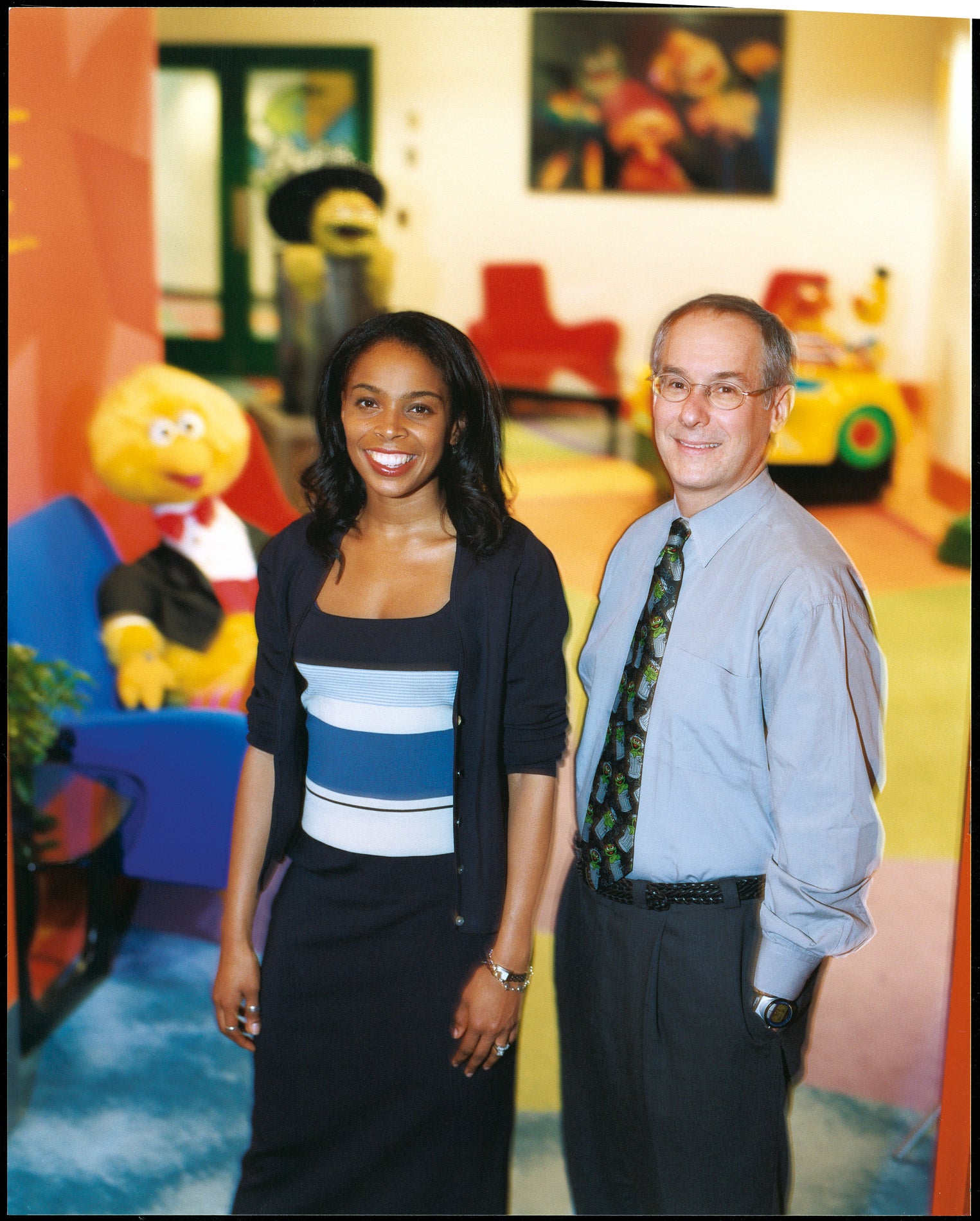Daniel Victor ‘ 79 and Valerie Mitchell ’93 are in the entertainment industry. They work around actors, rock musicians, larger-than-life characters, grouches, monsters and even one guy who speaks incessantly in the third person. So on the surface it would seem hard to defend their claim that they are in the business of education too. But over the course of a visit to their offices on the Upper West Side of Manhattan, these company attorneys make a convincing case that even their most childish stars teach kids about the world around them–wherever they may be.
As part of the five-person legal team for Sesame Workshop, Victor and Mitchell protect the value and the values of an organization known for its Sesame Street franchise, whose famous characters dominate the office landscape–from a Big Bird ride set up in the reception area to the Oscar the Grouch tie sported by Victor. But Sesame Workshop, formerly known as the Children’s Television Workshop, is not just “Sesame Street” anymore. It has branched out into other TV shows, books, magazines, video games and the Internet, and also has extended its reach internationally, helping to adapt its most famous program for more than 20 countries, including Egypt, Russia and South Africa. The children of these countries and the United States still learn the basics from “Sesame Street.” But the organization wants its viewers to learn much more, says Victor.
“The big impetus now is to try to do for tolerance and respect and understanding what we did for letters and numbers,” he said. “We want to try to make more scientific and more effective the ability for those host countries to understand their differences. And we feel you start with the kids.”
It’s an idealistic goal grounded in a practical, workaday reality. That’s where the lawyers come in, part of an often years-long production process in which the organization contacts government officials and local educators, researches curriculum goals, develops content appropriate to the Sesame brand and a host country’s needs (such as the introduction of an HIV-positive Muppet in South Africa), and finds producers and broadcasters to air the results. Because their legal department is so small, they are involved every step of the way, say Victor and Mitchell, who often travel several times to countries adapting “Sesame Street.”
“You really have so much responsibility to do every single aspect of whatever product or show it is that’s getting out the door,” said Mitchell. “When I talk to my friends at other companies, they do a much more focused, limited type of work than we do.”
Like any corporate counsel, however, they try to maximize revenues for their company, a nonprofit that relies on grants, licensing, and government and private support. The money generated, for instance, from the popular Tickle Me Elmo doll is “the fuel that feeds the mission side of the business,” said Victor. So is the collaboration with Nickelodeon on the Noggin channel for kids 6 to 11, one of many partnerships with for-profit companies that showcase Sesame Workshop products in an increasingly competitive market. That is in addition to its longtime association with PBS, which broadcasts “Sesame Street” and recent productions “Dragon Tales” and “Sagwa, the Chinese Siamese Cat.”
Now senior counsel, Mitchell has been, in a sense, with the organization from the start. A preschool fan when “Sesame Street” debuted in 1969, she still exudes the same zeal for the show. And as a lawyer, she always wanted to work in entertainment. Sesame Workshop, she says, is a perfect match.
“I don’t think I could really be in a television production company where they made a product that you could be more proud of than ‘Sesame Street,'” she said. “And that’s a nice place for an attorney. A lot of people do work in companies that are pretty interesting, but I don’t think anyone could say that their shows are more interesting than our shows.”
“Sesame Street” didn’t exist when Victor was a child. Yet the principles that Sesame Workshop espouses resonate with someone who was a politically active college student when the show began. The executive vice president and general counsel had worked at Columbia University and Paramount, places he could respect, he says. But none offered the benefits of his current employer.
“I had yet to find a company where I really felt like I was making a contribution not only to my clients but to society at large,” he said. “It’s the kind of job which has enormous psychic income.”
It’s the kind of job where you hear how much your employer means to so many people. Where fellow lawyers say that you must have the coolest job in the world, and you can reply, with all of your conviction, “I do.”
